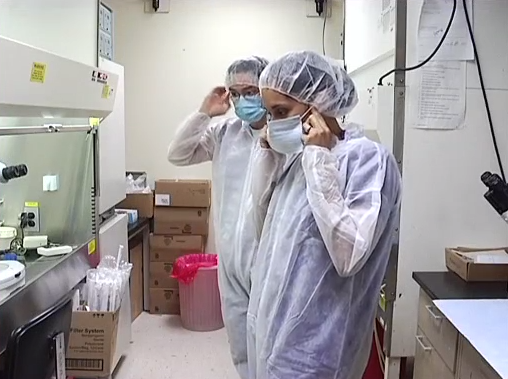This is a guest post by Adam Ruben, PhD—molecular biologist, television host on the Discovery Channel’s “Outrageous Acts of Science,” and author of the book “Surviving Your Stupid, Stupid Decision to Go to Grad School.” The opinions expressed are his own.
You can’t spell “collaborate” without “lab.” (You also need the word “borate,” which is a boron-containing oxyanion.)
Sometimes scientific research lends itself to teamwork, which means you have to work with other people — the avoidance of which may be the reason you chose science in the first place.
Here are some tips to help you cooperate, a word you can’t spell without “cooper,” which is a craftsperson who manufactures wooden barrels.

- Determine ahead of time who will be responsible for what. Have lengthy conversations about this in which you accuse each other of preemptive negligence.
- Friendships have been ended by petty squabbles over credit, so make sure to record exactly who performed which protocol steps. While maintaining these records, be sure to say loudly several times, “Oh, RIGHT. That was ME.”
- You should probably do all of the work, because no one else knows how to use the equipment properly. You should probably analyze all of the data, because no one else draws reasonable conclusions. You should probably present the results all by yourself, because no one else really did much to begin with.
- Alternatively, when it’s time to present the results, choose the most articulate group member to share your data. Since you’re all scientists, the most articulate group member is probably Siri.
- Publications have strict rules regarding authorship. No one knows what these rules are. The most important thing is that you all get very angry about them.
- Don’t work with Toby. Dude is nuts.
- Remember that every collaborator is someone with whom you’ll have to share credit. So, on second thought, don’t collaborate.

